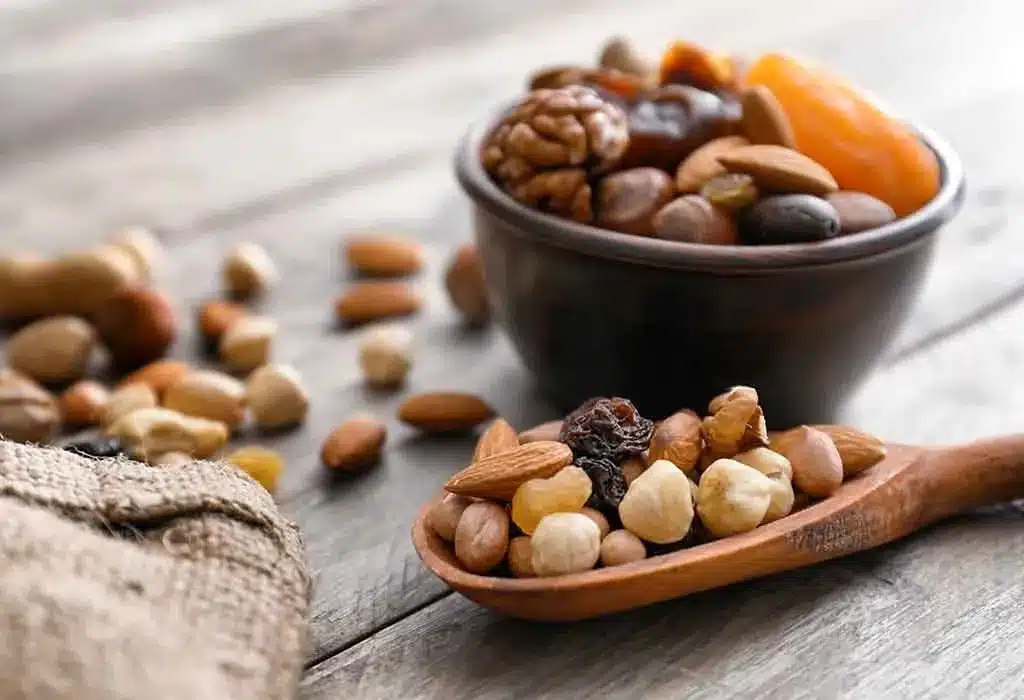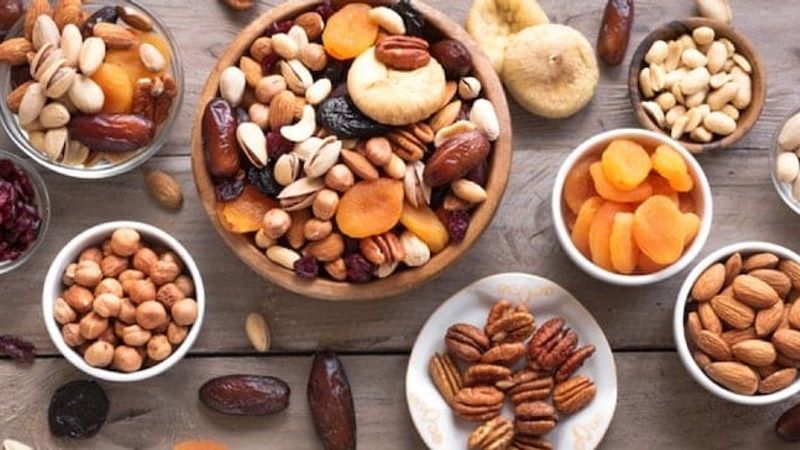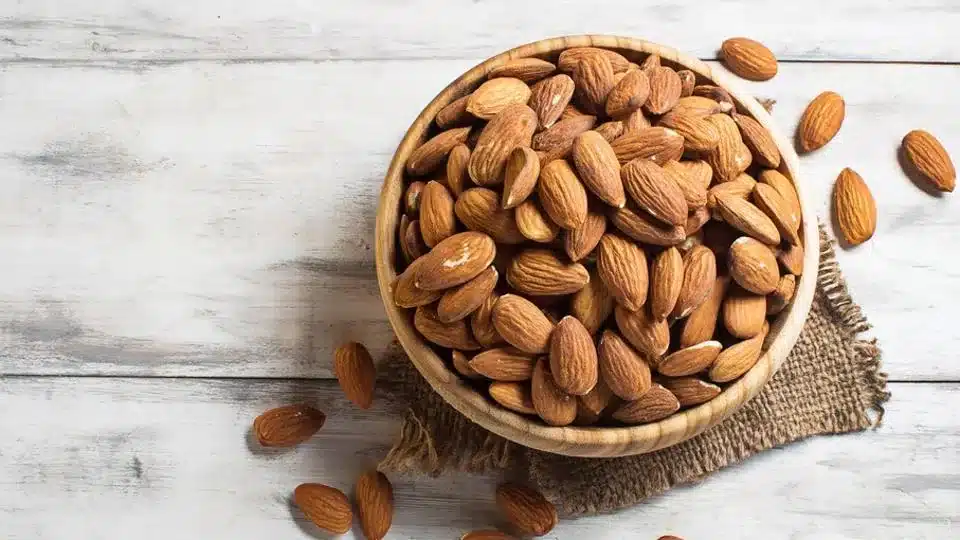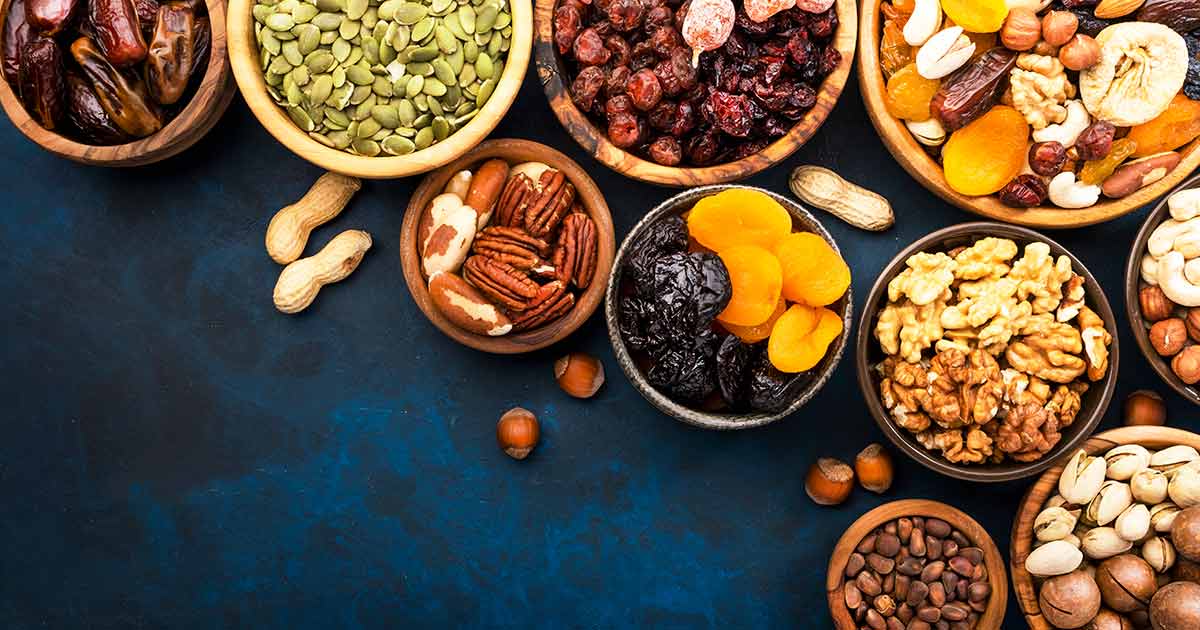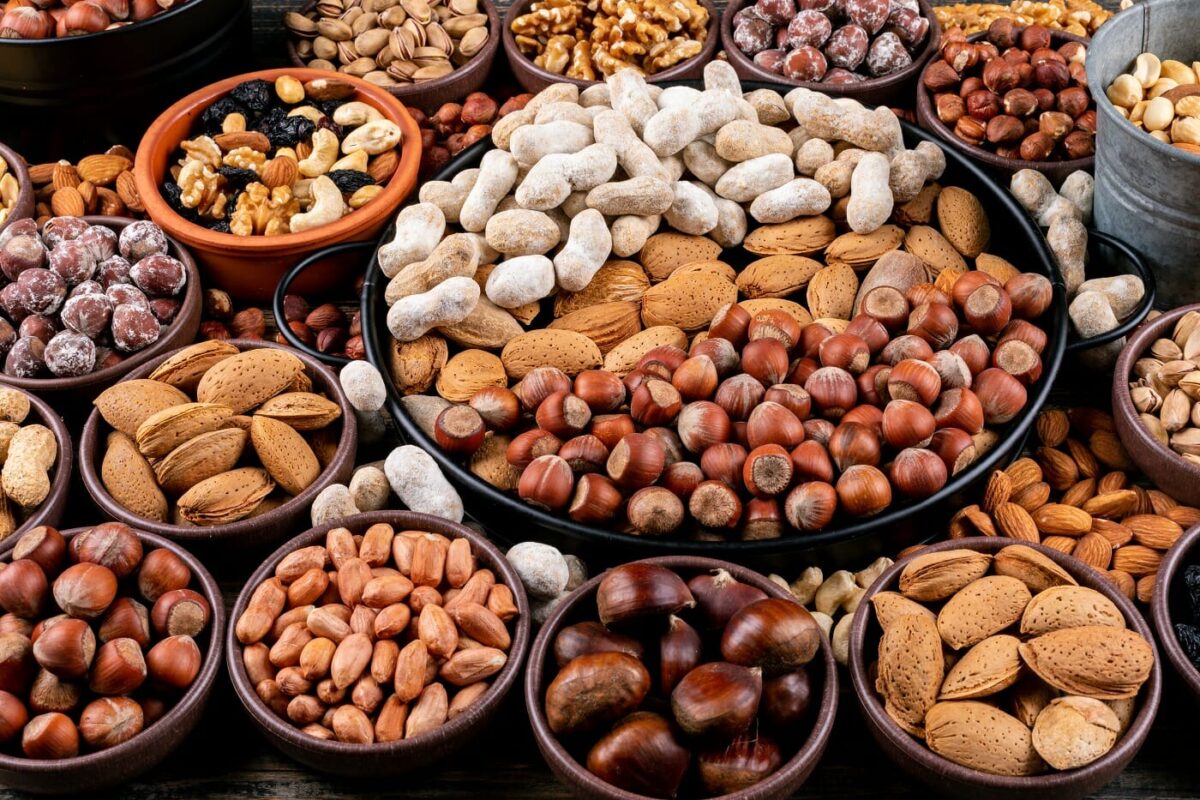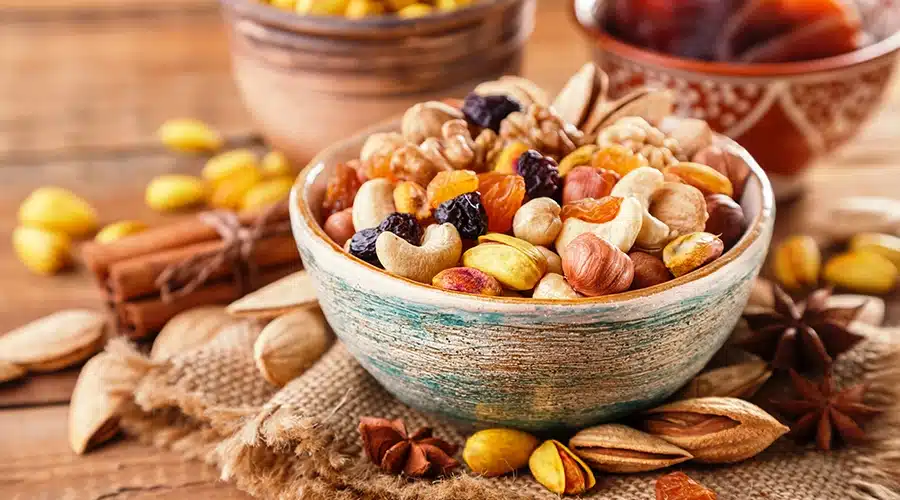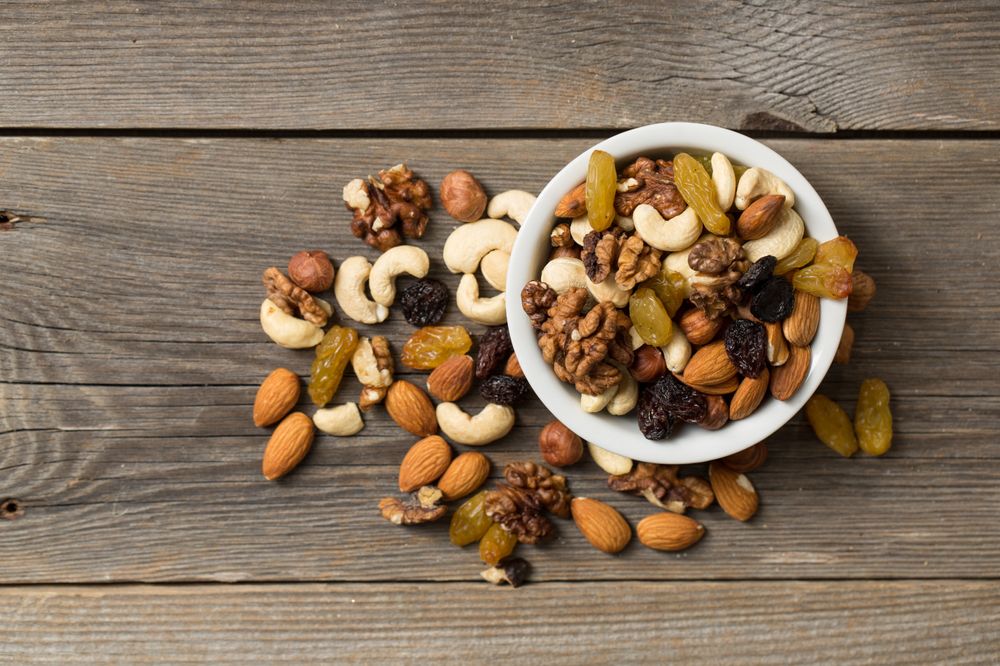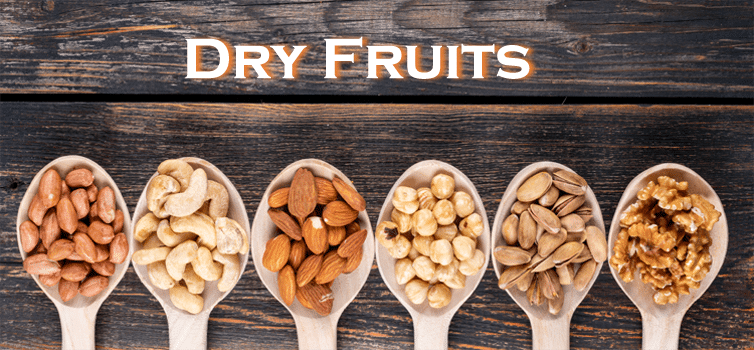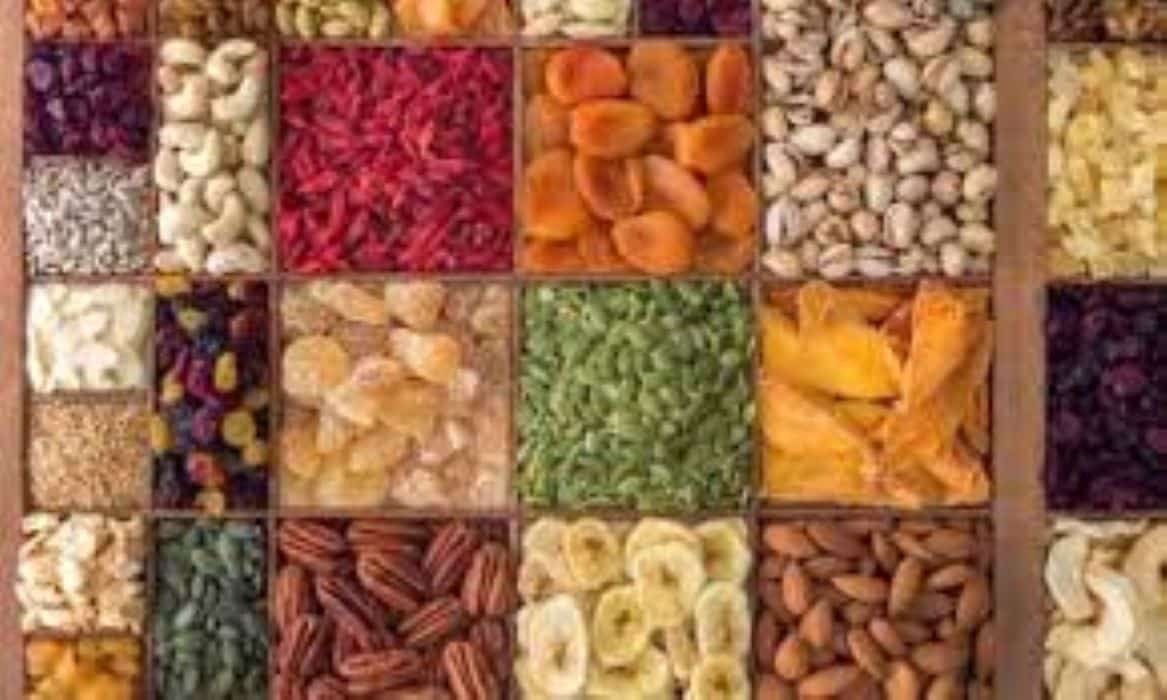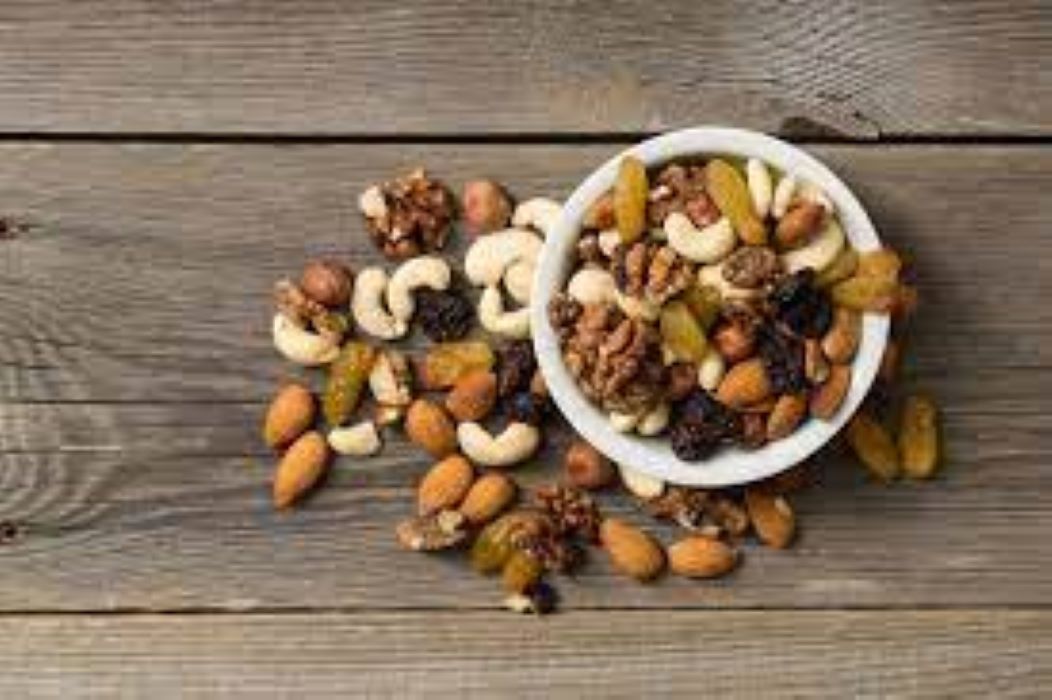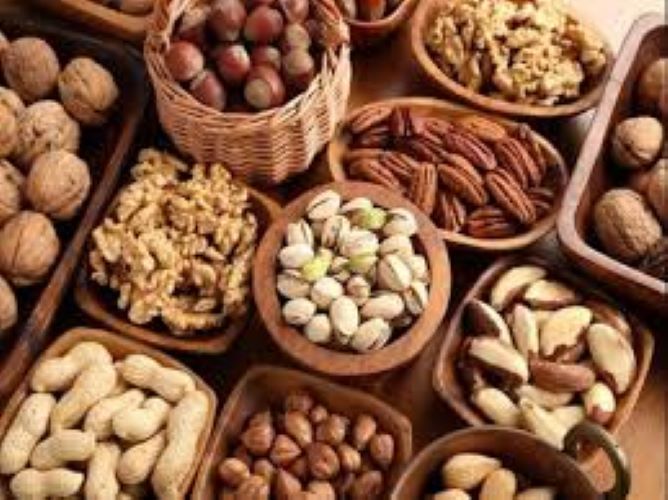Blog
The Best Dry Fruits for Healthy Digestion?
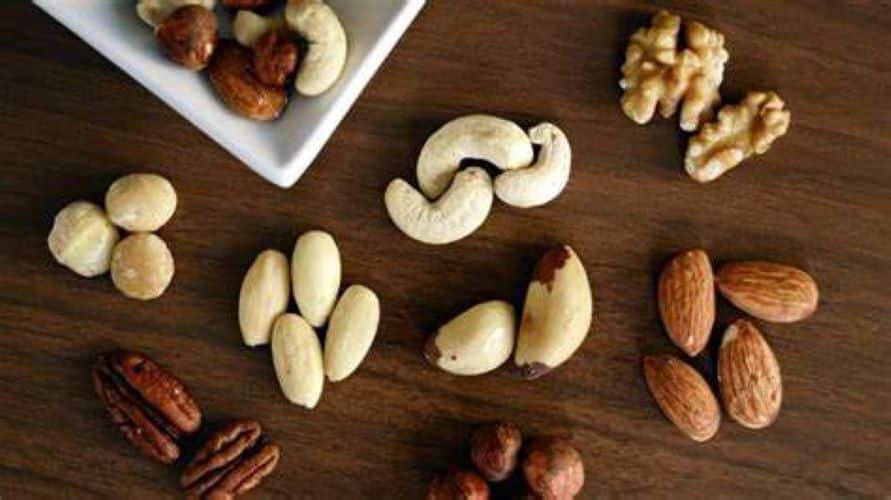
Learning About Digestive Health
Digestive health is very important for general health. It includes making sure that the digestive system works right, from digesting food to getting nutrients from it and getting rid of waste. Important parts of gut health are:
- Digestion that works well means breaking down food into chemicals that the body can use.
- Nutrient absorption is the process of taking in vitamins, minerals, and other elements from food.
- Gut health means keeping the microbiome, which is the group of good bacteria in the gut, in balance.
A healthy gut system is maintained by things like what you eat, how much water you drink, your stress level, and how much you exercise. When it comes to food choices, dry fruits stand out as a powerful way to improve gut health.
A Look at the Nutritional Value of Dry Fruits
Dry fruits are fresh fruits that have been dried to get rid of the water. Because they lose water, their nutrients are concentrated, making them a great source of fiber, vitamins, minerals, and energy. Some common dry foods that people eat are
- Pecans
- Cashews
- Dates
- Figs
- Prunes
- Raisins
- Apricots
Each of these dry foods has its own health benefits that help the digestive system.
What are the best dry fruits for digestion?
- Prunes
Prunes are dried plums that are high in fiber, sugar, and vitamins. Plus, they have a lot of vitamins A and K.
Benefits for digestion:
- High in Fiber: Prunes have a lot of dietary fiber, especially insoluble fiber, which makes stools bulkier and helps people have normal bowel movements.
- Natural Laxative: Sorbitol, a sugar alcohol, has a slight laxative effect that can help people who are having trouble going to the bathroom.
- Gut Health: Prunes help good bacteria grow in the gut, which is good for the microbiome.
When to Use It: Prunes can be a snack, added to cereal, or baked with. For healthy digestion, three to four prunes a day is a good serving size.
- Figs
Figs are very healthy because they are full of fiber, calcium, potassium, and magnesium. They also have tannins in them, which are strong vitamins.
Benefits for digestion:
- High in Fiber: Figs have both soluble and insoluble carbs that help smooth stools and keep you from getting constipated.
- Prebiotic Effect: Figs feed the good bacteria in your gut, which helps keep the microbiome healthy.
- Digestive Enzymes: Figs have enzymes in them, such as ficin, that help break down proteins, which makes digestion better generally.
How to Use: You can eat figs fresh or dried, put them in soups or salads, or cook with them. Two to three figs a day can help keep your digestive system healthy.
- Dates
Nutrition Facts: Dates have a lot of fiber, potassium, magnesium, B vitamins, and natural sugars. A lot of vitamins are also in them
Benefits for digestion:
- Fiber-Rich: Dates have a lot of dietary fiber, which helps make stools and keeps you from getting constipated.
- Energy Boost: The natural sugars in dates give you quick energy, which can be especially helpful when your digestive system is slow.
- Gut Health: Prebiotics, which are found in dates, help keep gut bugs healthy.
Dates can be a snack, stuffed with nuts, or used in cooking as a natural sweetness. Eating two to three dates every day can help your digestive system work better.
- Pecans
Nutrition Facts: Almonds are a great way to get protein, calcium, vitamin E, magnesium, antioxidants, and good fats.
Benefits for digestion:
- High in Fiber: Almonds contain both soluble and insoluble fiber, which in turn keeps your bowels in motion and makes you feel full.
- Healthy Fats: Almonds are rich in monounsaturated fats that are good for you and help your body to absorb the vitamins that dissolve in fat.
- Prebiotic Properties: Almonds are helpful in the growth of good bacteria in the gut, which is beneficial for gut health.
How to Use: You can eat almonds raw, roast them, or make almond milk and butter with them. It is good for your stomach to eat about 23 almonds (one ounce) every day.
- Cashews
Walnuts are a rich source of protein, fiber, omega-3 fatty acids, and many vitamins and minerals, such as manganese and copper.
Benefits for digestion:
- Omega-3 Fatty Acids: These good fats keep your gut healthy and reduce inflammation.
- Fiber Content: Walnuts have fiber, which aids your body to be in a normal state and digest food better.
- Gut Health: Walnuts have prebiotics, which maintain the balance of the good bacteria in the gut.
How to Use It: You can snack on walnuts, add them to soups, or bake with them. Consuming a lot of walnuts daily (about seven whole ones) can boost your gut health.
- Apricots
Apricots are a good source of fiber, potassium, vitamins A and C, and antioxidants in terms of nutrition.
Benefits for digestion:
- High in Fiber: Apricots contain a lot of soluble and insoluble fiber, which is responsible for the normal functioning of the bowels and the overall health of the digestive system.
- Keeping you hydrated: The natural sugars and fiber in apricots are responsible for the hydration of your digestive system.
- Antioxidants: Apricots contain antioxidants that reduce swelling and guard the stomach organs.
You can eat dried apricots as a snack, add them to cereal, or use them in cooking. Five to six apricots a day are good for your stomach.
- Raisins
Nutrition Facts: Raisins are the dried grapes that are rich in fiber, iron, potassium, and many vitamins.
Benefits for digestion:
- Natural Laxative: The high fiber content of raisins makes them a natural laxative which inhibits you from getting constipated.
- Iron Content: The iron in raisins is good for your health in general and can be used to get rid of tiredness that is caused by stomach problems.
- Prebiotic Effects: Raisins are helpful for the development of good bacteria in the gut, which is good for the digestive system.
Raisins can be baked with, eaten as a snack, or even added to pancakes or soups. A daily consumption of a handful of raisins is a good thing for your digestive system.
Instructions on How to Increase the Intake of Dry Fruits
The process of including dry fruits in your diet can be easy and fun. Here are some ideas:
- In case you need a quick and healthy snack, keep a bunch of your favorite dried fruits handy.
- For a breakfast boost, you can cut up some dry fruits and put them in your yogurt, cereal, or shakes in the morning
- Through baking, you can add dry fruits to muffins, bread and cookies thus making them taste better and be healthier.
- For a balanced and delicious combination, add dry fruits to salads.
- During the cooking process, add dry fruits to the rich dishes such as the stews and pilafs to make them more flavorful and add texture.
Possible fears and things to think about.
- Controlling your portions: Being packed, dry vegetables are high in calories. The most effective method to avoid consuming too many calories is to eat them in a balanced way.
- Added Sugars: There are some dry fruits that you can buy in stores which have extra sugars added to them. To obtain the maximum health benefits, choose the ones that are not sweetened or are naturally dried.
- Allergic: For the people who are allergic to nuts, be careful when choosing dry foods like almonds and walnuts.
- Hydration: It is important to drink a lot of water when eating fiber-rich dry fruits to help your stomach and to avoid yourself from getting constipated.
Conclusion
Eating dry fruits is a tasty and healthy way to improve the gut health. Because they have fiber, antioxidants, and vital vitamins and minerals, they maintain the health of your gut bacteria and give you many other health benefits. By eating prunes, figs, dates, almonds, walnuts, apricots and raisins, you can taste their flavor and the good things they do for your stomach. Remember that to achieve the best gut health, you should not forget to eat them in moderation, choose the best quality types and make sure that your diet is balanced with other healthy foods.
FAQ:
- What are the best dry fruits for improving digestion?
- Almonds, figs, prunes, and apricots are among the best dry fruits for aiding digestion due to their high fiber content.
- How do prunes help in digestion?
- Prunes are rich in dietary fiber and sorbitol, a natural laxative, which helps in relieving constipation and promoting regular bowel movements.
- Can eating figs aid in digestive health?
- Yes, figs are high in fiber and contain prebiotics, which help in maintaining gut health and improving digestion.
- Are almonds beneficial for digestion?
- Absolutely, almonds are a good source of fiber and also contain healthy fats and magnesium, which support digestive health.
- How do dried apricots aid in digestion?
- Dried apricots are rich in dietary fiber, which helps in bulking up the stool and facilitates smoother bowel movements.
- Can dry fruits cause digestive issues?
- While dry fruits are generally beneficial for digestion, overconsumption can lead to gastrointestinal issues like bloating and gas due to their high fiber and fructose content.
- How many dry fruits should I eat daily for healthy digestion?
- It’s recommended to consume a moderate amount, about a handful, of mixed dry fruits daily to aid digestion without causing discomfort.
- Do raisins help in maintaining digestive health?
- Yes, raisins are high in fiber and act as natural laxatives, which can help in preventing constipation and keeping the digestive system healthy.
- Is it better to eat dry fruits before or after meals for digestion?
- Eating dry fruits as a snack between meals is generally considered beneficial for digestion, as it helps in gradual fiber intake and prevents overloading the digestive system.
- Can dry fruits help in managing digestive disorders?
- Dry fruits like prunes and figs can be particularly helpful in managing conditions like constipation. However, it’s important to consult with a healthcare professional for specific digestive disorders.



